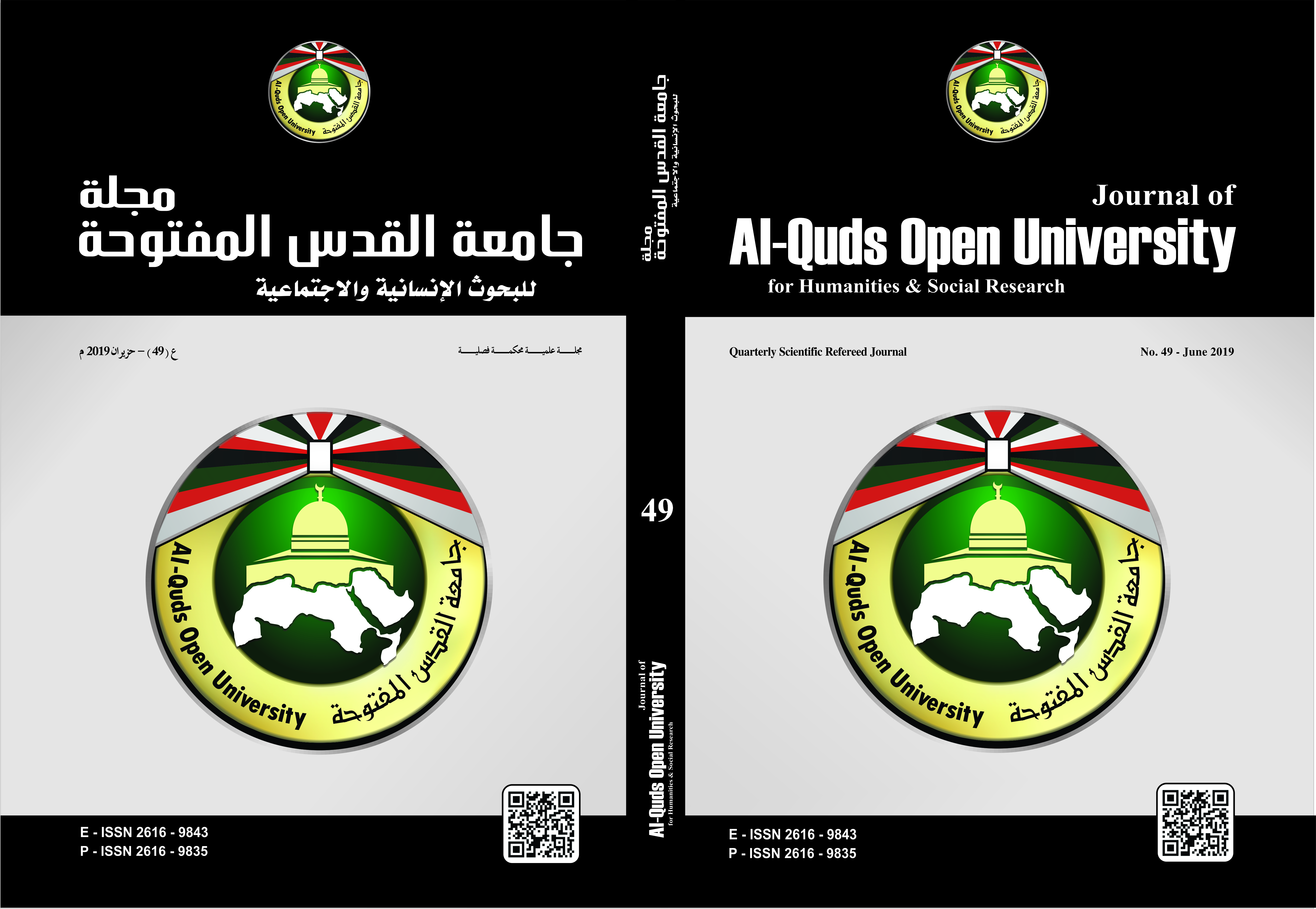Death Penalty in Palestine Amid Supporters and Opponents
Keywords:
Execution, Penalties, Serious Crimes.Abstract
The death penalty is one of the deterrent punishments that have been applied in Palestine. There has been a great debate between those who call for the abolition of this penalty and those who believe that it should be kept. The group calling for the abolition of the death penalty, considered this penalty as an inhuman judgment. It is a murder that cannot be justified in the name of justice. Thus, the accession of Palestine to the International Covenant on Civil and Political Rights of 1966, without any reservations, made it committed to all the provisions of the Covenant, including the abolition of the provisions on the death penalty, and that the penalty cannot be revoked in case the convicted is found innocent. There is no way to redress the damage happened.
While the group calling for keeping the death penalty is of the view that the existing debate regarding the penalty lies in the inappropriateness of the penalty with the crime, as it may be raised for each penalty, since reaching a full appropriateness between punishment and crime is not possible. The fear of criminals of the penalty deters them before committing any crime when they realizes that the punishment will be inflicted on them completely and inevitably. The punishment of the perpetrator according to the principle of justice is related to the wrong deeds, as nothing will stop he/ she who kills others from repeating what he/ she did again.
Therefore, it is impossible to completely abolish the application of the death penalty because it is a necessary punishment for deterring the perpetrators and maintaining the stability of life in society, with the need to restrict such punishment to very serious crimes, as well as the need to provide all judicial guarantees.
References
القوانين والتشريعات:
- قانون العقوبات الأردني رقم 16 لعام 1960.
- قانون العقوبات البريطاني لسنة 1936.
- قانون العقوبات الفلسطيني الثوري لسنة 1979.
- قانون الاجراءات الجزائية الفلسطينية رقم 3 لسنة 2001.
- قانون مراكز الاصلاح والتأهيل لعام 2005 المعدل.
- القرار بقانون رقم 9 لسنة 2018 بشأن إنشاء محكمة الجنايات الكبرى.
- القرار بقانون الخاص بالاحداث رقم 4 لسنة 2016.
- الاتفاقية الدولية لحقوق الطفل التي اعتمدتها الجمعية العامة للأمم المتحدة بالاجماع في 20 / 11/ 1989.
الكتب القانونية:
- عمار الدويك: عقوبة الإعدام في فلسطين، منشورات الهيئة المستقلة لحقوق الانسان، رام الله ، 1999.
- فخري الحديثي و خالد الزعبي: شرح قانون العقوبات، ط2، دار الثقافة للنشر والتوزيع، الأردن، 2010.
- فخري الحديثي و خالد الزعبي: الجرائم الواقعة على الأشخاص، ط1، دار الثقافة للنشر والتوزيع، الأردن، 2009.
- طلال أبو عفيفة: جرائم الاعتداء على الأشخاص، ط 1، دار وائل للنشر والتوزيع، الأردن، 2016
- كامل السعيد: شرح قانون العقوبات- الجرائم الواقعة على الأشخاص، ط 2 ، دار الثقافة للنشر والتوزيع، الأردن، 2011.
- عبد الوهاب حومد، عقوبة الإعدام بين الابقاء والإلغاء، مجلة عالم الفكر، مج 7 ، عدد 4 ، 1977.
- محمد شلال العاني، علي حسن طوالبة:علم الإجرام والعقاب، دار المسيرة، الطبعة الاولى، الاردن، 1998.
- عبد الحميد الشواربي: التعليق الموضوعي على قانون العقوبات، منشأة المعارف، الإسكندرية، 2003.
- علي عبدالقادر القوهجي: قانون العقوبات القسم العام، ط1، الدار الجامعية، مصر، 1988.
- محمود محمود مصطفى: شرح قانون العقوبات، الطبعة الأولى، مصر، 1978 .
- محمود نجيب حسني: شرح قانون العقوبات القسم الخاص، دار النهضة العربية، مصر، 1988.
- محمد صبحي نجم: الجرائم الواقعة على الأشخاص، ط2، دار الثقافة للنشر والتوزيع، الأردن،1999.
- محمد يوسف علوان ومحمد خليل الموسى: القانون الدولي لحقوق الانسان، الجزء الثاني، دار الثقافة، الاردن، 2009.
- محمد عبدالله الوريكات: مبادئ علم الجريمة، ط 2 ، اثراء للنشر والتوزيع، الأردن، 2012.
مواقع الانترنت:
- تقرير صحفي منشور على موقع bbc ، http://www.bbc.com/arabic/world-
تمت زيارة الموقع بتاريخ 24- 12- 2018.
- راجي الصوراني: اليوم العالمي لمناهضة عقوبة الإعدام ، المركز الفلسطيني لحقوق الانسان، 2016، مقال منشور عبر موقع المركز على الانترنت، http://pchrgaza.org/ar/?p=12769
Downloads
Published
How to Cite
Issue
Section
License
- The editorial board confirms its commitment to the intellectual property rights
- Researchers also have to commit to the intellectual property rights.
- The research copyrights and publication are owned by the Journal once the researcher is notified about the approval of the paper. The scientific materials published or approved for publishing in the Journal should not be republished unless a written acknowledgment is obtained by the Deanship of Scientific Research.
- Research papers should not be published or republished unless a written acknowledgement is obtained from the Deanship of Scientific Research.
- The researcher has the right to accredit the research to himself, and to place his name on all the copies, editions and volumes published.
- The author has the right to request the accreditation of the published papers to himself.













_2.png)
_.png)
_2.png)
_1.png)
_.png)

